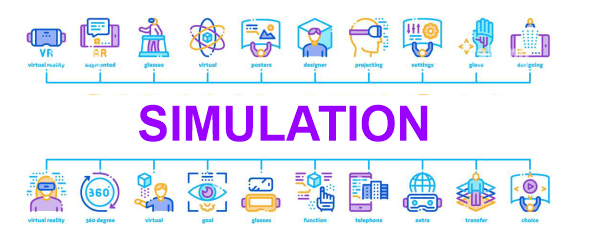The Advantages and Limitations of Simulation Modeling

Simulation modeling offers several advantages and also has limitations, which are important to consider when using this technique for analyzing and understanding complex systems. Here are the key advantages and limitations of simulation modeling:
Flexibility: Simulation models can represent a wide range of complex systems, processes, and interactions, making them suitable for modeling diverse phenomena across various domains.
Experimentation: Simulation models provide a controlled environment for conducting experiments and analyzing the behavior of systems under different scenarios, conditions, and assumptions.
Risk-Free Testing: Simulation modeling allows decision-makers to explore alternative strategies, policies, and decisions in a risk-free environment before implementing them in the real world.
Complexity Handling: Simulation models can handle systems with high levels of complexity, uncertainty, and nonlinearity, making them suitable for modeling real-world phenomena that are difficult to analyze using analytical methods.
Visualization: Simulation models often include graphical visualization tools that enable users to visualize system behavior, trends, and patterns, helping to communicate insights and findings more effectively.
Decision Support: Simulation models provide decision-makers with valuable insights, data, and evidence to support decision-making processes, improve understanding, and evaluate alternative courses of action.
Performance Optimization: Simulation modeling can be used to optimize system performance, identify bottlenecks, and improve efficiency by testing different strategies and configurations.
Resource Intensive: Building and running simulation models can be computationally intensive and time-consuming, especially for large-scale and complex systems, requiring significant computational resources and expertise.
Validity and Reliability: The validity and reliability of simulation models depend on the accuracy of input data, assumptions, and model structure. Uncertainty and variability in model parameters can affect the accuracy and trustworthiness of simulation results.
Interpretation Challenges: Interpreting simulation results and drawing meaningful conclusions can be challenging, especially when dealing with complex systems with many interacting components and variables.
Model Complexity: Simulation models can become overly complex, making them difficult to understand, maintain, and validate. Simplifications and abstractions may be necessary to manage model complexity, but they can also introduce biases and limitations.
Assumption Sensitivity: Simulation models are sensitive to input assumptions and parameter values, and small changes in assumptions can lead to significant changes in model outcomes. Sensitivity analysis is essential to assess the robustness and reliability of simulation results.
Model Validation: Validating simulation models against real-world data or empirical observations can be challenging, especially when data is limited, unreliable, or subject to measurement error.
Generalizability: Simulation models are often specific to particular contexts, assumptions, and scenarios, limiting their generalizability and applicability to other situations or domains.
Despite these limitations, simulation modeling remains a valuable tool for analyzing complex systems, conducting experiments, and supporting decision-making processes in diverse fields, including engineering, business, healthcare, and social sciences. Understanding the advantages and limitations of simulation modeling is essential for using this technique effectively and interpreting simulation results accurately.
Thank you,